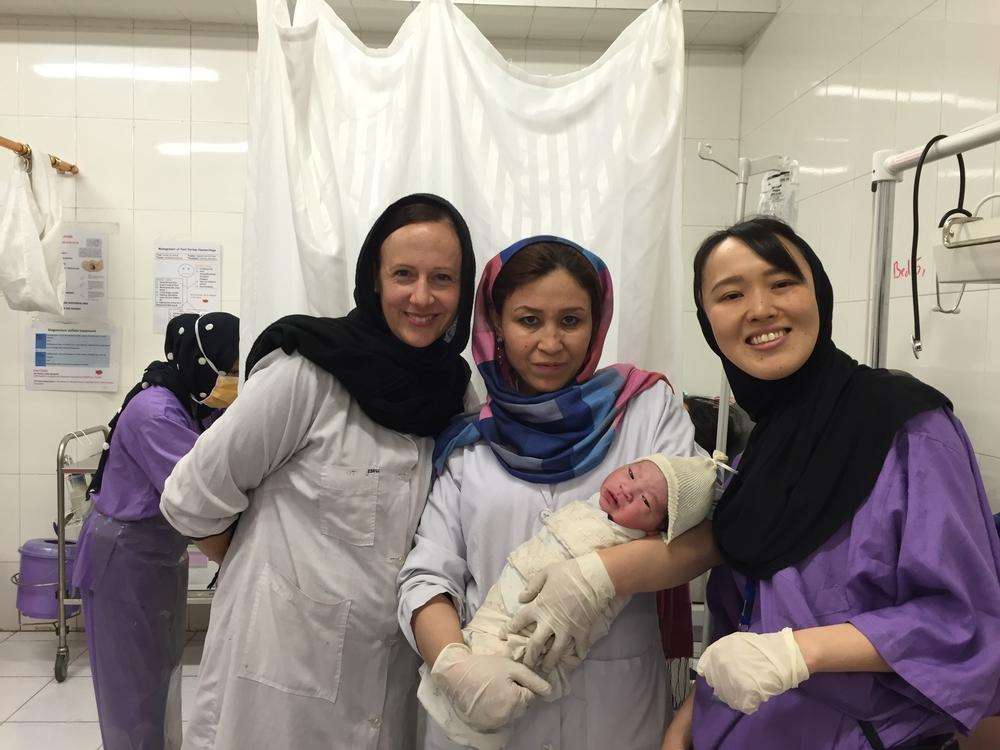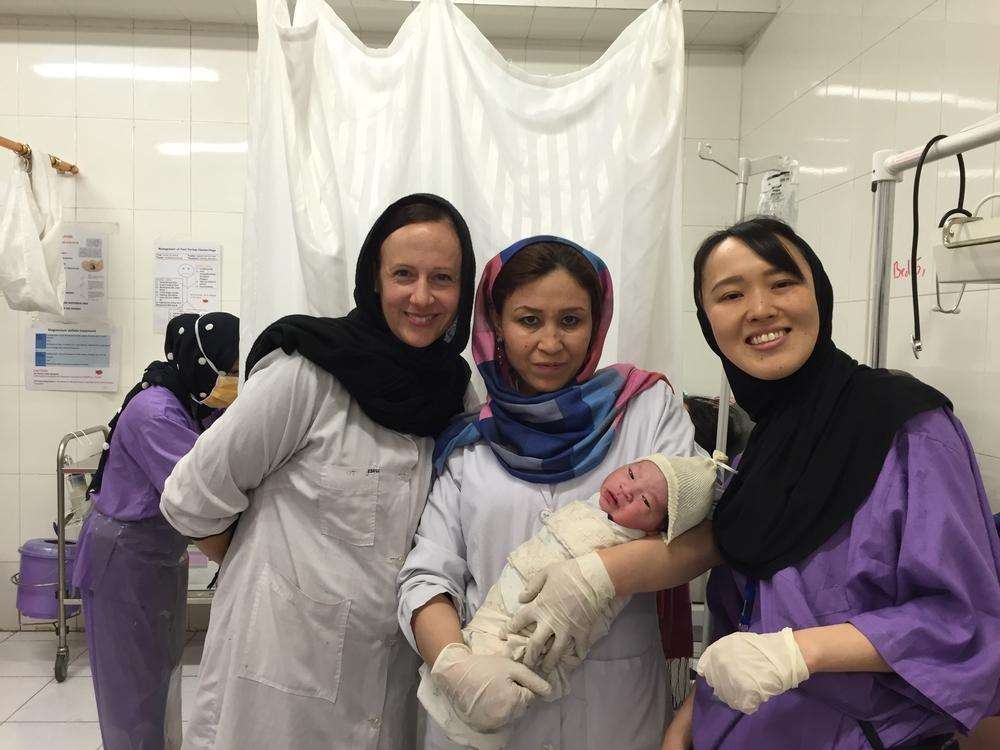Doctors Without Borders/Médecins Sans Frontières (MSF) women's health advisor and midwife Kara Blackburn recently completed an assessment of MSF’s fastest-growing emergency obstetrics and neonatal care project, in Dasht-e-Barchi Hospital in the Afghan capital of Kabul. Here she discusses the context.
"The predominantly Hazara community [a Persian-speaking ethnic group in Afghanistan] that we are looking after in the west of Kabul is a historically marginalized and still poor population, displaced from their original, mountainous homes in the provinces of Afghanistan due to decades of ongoing conflict. Over the last ten years in particular they have slowly moved into what was originally a smaller Hazara community in Kabul. The population has grown exponentially, from an estimated 200,000 in 2001 to approximately 1.2 million people today.
I was asked to visit the Dasht-e-Barchi project because the number of deliveries has doubled since the project opened just over a year ago! In round figures, the total for 2015 was 11,000. It will be more this year. We wanted to review the challenges of upholding quality of care under the sheer pressure of more and more women coming to deliver in our facility.
Home visit to check in on twins Zohal & Ojate - Since 2014 MSF has been running a specialized maternity dept #Kabul pic.twitter.com/qRq5Etogqv
— Doctors w/o Borders (@MSF_USA) April 24, 2016
An Increase in Deliveries
In the last 24 hours of my visit the team managed 60 deliveries—in any hospital this is a huge volume, and yet everyone kept up the pace; striving to provide a good quality of care. I was really impressed. The hospital I worked at in Australia would have struggled with such a workload.
The increase in deliveries in Dasht-e-Barchi Hospital is related to a number of factors, including the hospital offering free, quality care, and that there simply aren’t enough maternity beds in Kabul.
We run a labor and delivery room, operating theater, post-delivery services, and a newborn unit for sick and at-risk babies. The Afghan Ministry of Public Health looks after the antenatal clinic and postnatal clinic and there is another nongovernmental organization, Marie Stopes International, providing family planning twice per week.
Caring for Low- and High-Risk Patients
As a referral center we see a cross-section of low-risk women and high-risk women, and we’re managing a significant number of complications—which is why it’s important to provide emergency obstetric care. But the majority of the local women and their families know to come to the hospital if the mother goes into labor, or if there’s a complication. This could be postpartum hemorrhage, pre-eclampsia (high blood pressure and blood in the urine during pregnancy), or placental abruption (when the placenta partially or fully detaches from the uterine wall). Thankfully, because we see these patients in time to manage their conditions, we don’t see the severe complications that might develop from these.
Postpartum care is one of the areas of service MSF has been strengthening. It is not only part of safe delivery care; it can also contribute to prevention of future complications. Our staff advise and remind new mothers to return to the hospital if they are bleeding; or if their baby becomes quiet and is not feeding. The first 24 hours are really crucial. So when the women and their babies leave the hospital (usually six hours post-delivery unless there are complications), you need to make sure that all the necessary messages have been passed on clearly."
Since November 2014, MSF has supported the Afghan Ministry of Public Health District Hospital in Dasht-e-Barchi. The 30-bed maternity and 20-bed newborn unit offer services free of charge, with a focus on complicated cases. During its first year of activity, MSF’s Dasht-e-Barchi maternity ward carried out 10,727 deliveries, 17 percent complicated. The high quality care for patients is provided by a team of about 191 Afghan and international qualified professionals.
Learn More About MSF's Work on Women's Health





